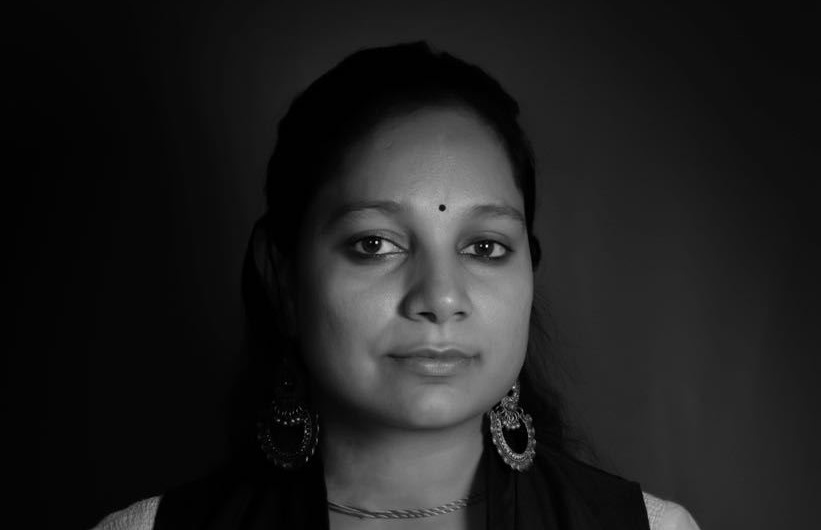
33-year old Prachi Kaushik is running a social enterprise ‘Vyomini’ in Delhi which produces environment-friendly and low-cost sanitary napkins ‘Rakshak’. She made her aim to provide sanitary napkin to every woman.
She thought if talking about periods is a taboo, it’s not going be easy to work on menstrual hygiene? That was the first challenge Prachi Kaushik, a young entrepreneur, could think of while pursuing her dream of starting a social enterprise on menstrual health management.
But her determination to address social, economic and environmental issues associated with menstrual health stood against all. What topped her agenda was launching a low-cost and environment-friendly sanitary napkin.
She says that she had some idea it was not easy to take this issue into the mainstream. “The words periods and sanitary napkins made people uncomfortable. In a country where sanitary napkins are bought in a black plastic bag, as a woman making menstrual health management her career was bound to come with some baggage.”
Before starting on the idea of this project, she had an experience of over 10 years in the development sector and having worked with NGOs, she had a chance to motivate and educate hundreds of women from disadvantageous group on the issue of menstrual health.
However, taking this idea to another level by starting an enterprise single-handedly had its own risk factors and apprehensions. Mainstreaming an issue like periods, convincing her family to quit her job and keep aside the idea of marriage at the age of 32 were not easy decisions either since she did not belong to an affluent family.
“But what kept me motivated was my interaction with those poor women who shared their inability to afford sanitary napkins, even if they understood the importance of menstrual hygiene,” says Prachi. During her groundwork and communication with women from different parts of the country, it came as a shock as well as pained her to know that uninformed and underprivileged women across country were compelled to use harmful products as sanitary napkins such as sandbag, plastic, paper, leaves etc. she knew that this could cause uterine infection and other reproductive health issues but those women were not to be blamed. Either they did not know harms of using these articles or could not afford the sanitary pads.
She quit her job with Delhi Government and immersed herself in researching for affordability, health and environment impact of sanitary napkins. In 2016, she started her social enterprise ‘Vyomini’ and launched sanitary napkin ‘Rakshak‘ this year with the help and coordination of her small but dedicated team of friends and a few professionals. Member of Parliament, Ms Meenakshi Lekhi launched ‘Rakshak.’ Mrs World 2018, Rumana Sinha Sehgal promoted ‘Rakshak’ on International Menstrual Hygiene Day in order to end period poverty.
She came to know that most commercial sanitary napkins available in market contain plastic which is harmful not just for environment but also pose great health risk to the users. She made a vow to make her product environment-friendly, and so sanitary napkins produced in her plants do not contain plastic or synthetic fibre. Most importantly, they are low-cost and produced by women from economically weaker background such as slums, jhuggi clusters. It is a product by them and for them. The enterprise is run from Delhi, from where she belongs.
Through her enterprise, women are made aware about importance of menstrual health by conducting workshops across different states. The focus of the workshops remains making women aware about menstrual health management as a large number of women are completely unaware about sanitary health products. Her organisation has reached out to over two lakh women in Delhi and NCR alone either by creating awareness or by providing the product.
Though, it appeared that this is an issue of only underprivileged women, it affects the all classes in terms of health and environmental impact. Sanitary napkins available in the market contain synthetic fibre and are almost impossible to dispose.
“My objective is to make as many women as possible to aware about harms of using plastic sanitary napkins, reach out to a large number of underprivileged women who do not have access to sanitary napkin and guide them on menstrual health management,” says Prachi.
After two years of launching Vyomini, sanitary napkin production plants are being run in Jhajjar and Hisar in Haryana, Sultanpur Mazra in Delhi, Bhubaneshwar in Odisa and Navi Mumbai in Maharashtra. The enterprise claims to having sold 5 lakh units of sanitary napkins so far, produced, marketed and manufactured by more than 500 underprivileged women.
“The product has also reached to women in Bangladesh and Nepal. People now call me padwoman. Now I hope to reach out to a greater number of women in future. As a young individual it is my achievement but if seen from a bird’s eye view, it is an achievement of society as a whole,” she sums up
Wonder ful job..prachi kaushik ji..
Keep doing it.
LikeLiked by 1 person
Wonderful job prachi..
Keep it up..
You will achieve your goal very soon.
LikeLiked by 1 person
Thanks
LikeLike
Worth reading
LikeLike
I first met PK in 2008 and found her to be very passionate and determined in pursuing her dreams for fighting for poor and their rights. I know she is a trend setter and can only wish that never let anyone break you down by saying that you can‘t do something.
You are very special and I am really proud of you. Keep shining.. 👍
N
LikeLike